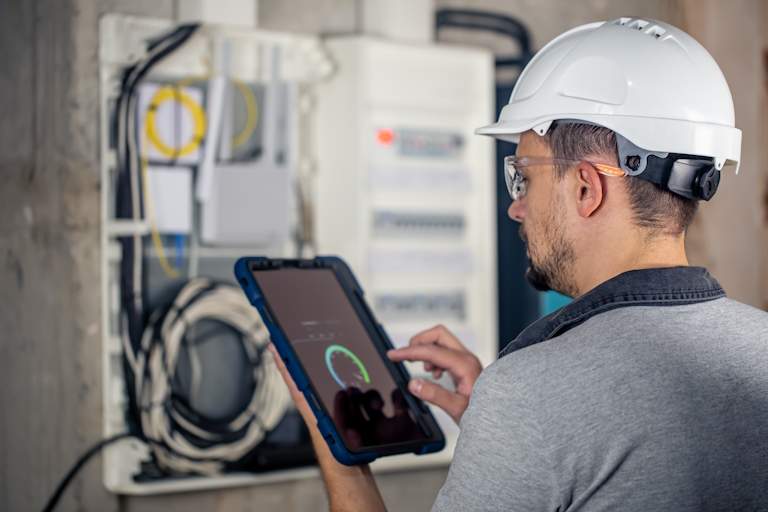Hotels and facilities are under increasing pressure to manage energy consumption and improve their environmental impact. There are many challenges in delivering energy plans that not only satisfy energy consumption and cost targets, but also achieve organisational environmental goals.
Environmental initiatives must be developed, implemented and tracked; this can be a complex task requiring skilled operators, as well as technology to deliver and track environmental benefits, help coordinate operations and provide visibility and transparency towards the achievement of set targets.

Let’s consider some of the key strategies that can be implemented to achieve these goals:
1. Automated Reporting
Hotel and property managers need to generate and distribute insightful reports on electricity, gas, water and fuel oil. In addition to the raw consumption data, reporting tools should also provide the ability to document and analyse consumption trends, and allow operators to track the performance of ongoing energy projects.
Automated reports can also alert of any sudden spikes or drops in energy consumption, helping hotel and property managers stay ahead of potential problems before they arise.
2. Energy Cost Analysis & Real-time Monitoring
Granular cost reporting should enable operators to drill down to visualise and analyse the cost per unit of energy used in the property. Cost breakdown reporting allows managers to understand energy costs at the property level, while also providing for more detailed analysis of the costs in each area, appliance or individual piece of equipment, identifying appropriate corrective measures.
An effective monitoring system also helps track the performance of equipment over time, allowing for informed decisions about when it’s time to replace aging equipment or identify areas where efficiency improvements can be made. Hardware integrations can also provide real-time monitoring at appliance-level.
3. Energy Waste Analysis
Energy Auditing Tools allow facility managers to quickly identify areas of energy waste and inefficiency, providing the basis for decisive energy-saving actions.
For example, heating, ventilation, and air conditioning (HVAC) systems consume a large amount of energy if not properly maintained, and effective implementation of preventative maintenance work is essential. Too often, facility managers are reacting to complaints or requests which, combined with staffing challenges, lead to deferral of preventative work – or worse – which can have costly consequences.
Another common occurrence is the replacement of old, inefficient equipment such as lighting and HVAC with new, high-efficiency models can help create significant savings on energy costs. Identifying low-performing assets assists the capital planning process in creating cost-saving initiatives.
Smart technologies, such as automated lighting, climate control systems, and energy monitoring systems, can also help hotel and property owners and managers identify areas where they can save energy and money.
4. Measure and Verify Energy Savings
In addition to regular operations, hotel and property managers need to report and verify energy consumption and savings on special projects including refurbishments, retrofits and renewable technology projects.
Tools should provide consolidated data reporting over multiple properties to provide an aggregate view of group energy consumption and cost against pre-defined targets.
Implementing regular ‘measurement & verification’ processes allows property owners and managers to track progress over time and adjust their strategies as needed in pursuit of greater efficiency gains.
5. Automated Event Alerts & Budget Performance Tracking
Automated alerts and notifications help facility managers keep their finger on the pulse of energy usage, while attending to other operational tasks.
Set threshold measures to be alerted when kWh usage reaches a certain level, and respond to abnormal consumption behaviour before incurring significant extra cost. Additionally, budget performance tracking offers a more comprehensive look at overall savings achieved both year-over-year and compared against pre-set goals – enabling managers to adjust strategies as needed in order to maximise efficiency gains while minimising environmental impact.
Q2 Solutions property management platforms Sidekick and Escap can help you achieve your energy goals. Contact us to learn how.

